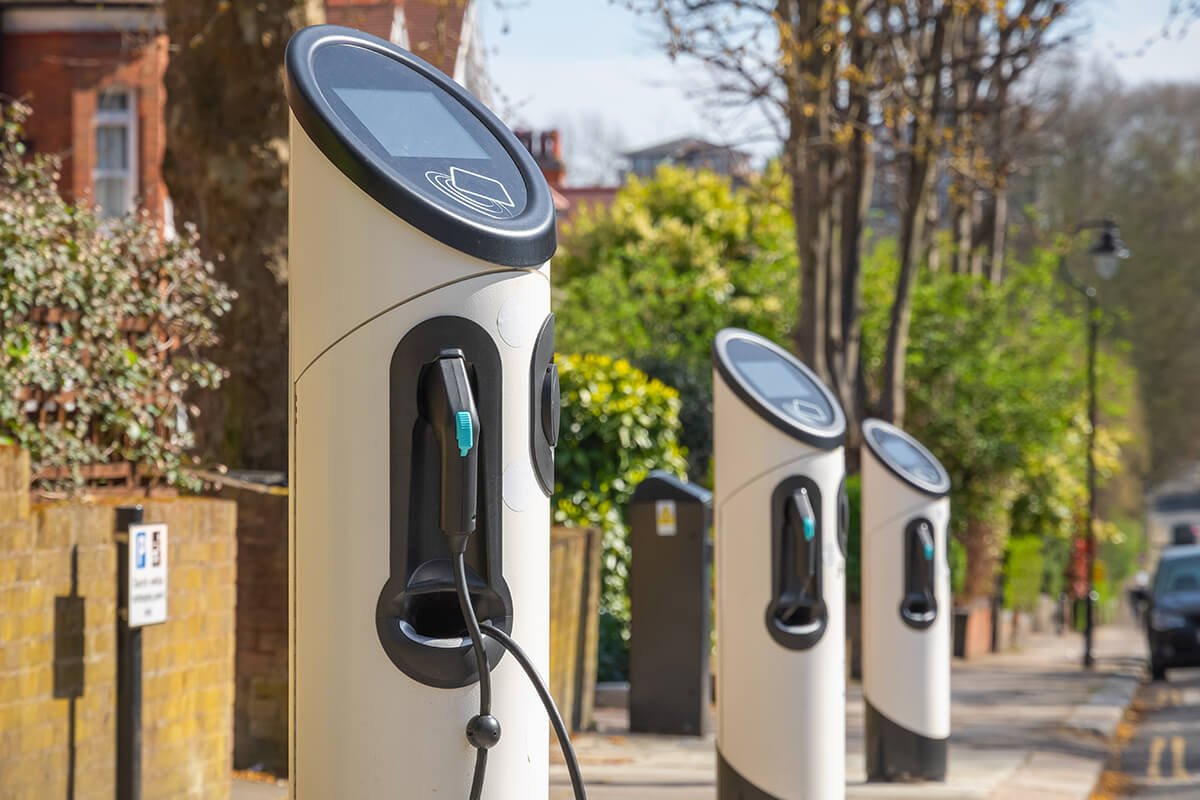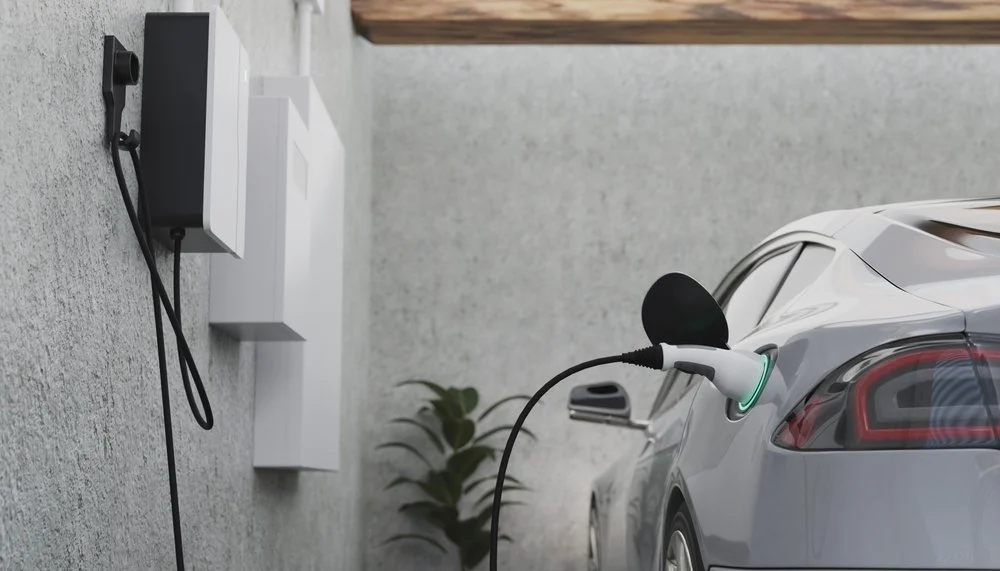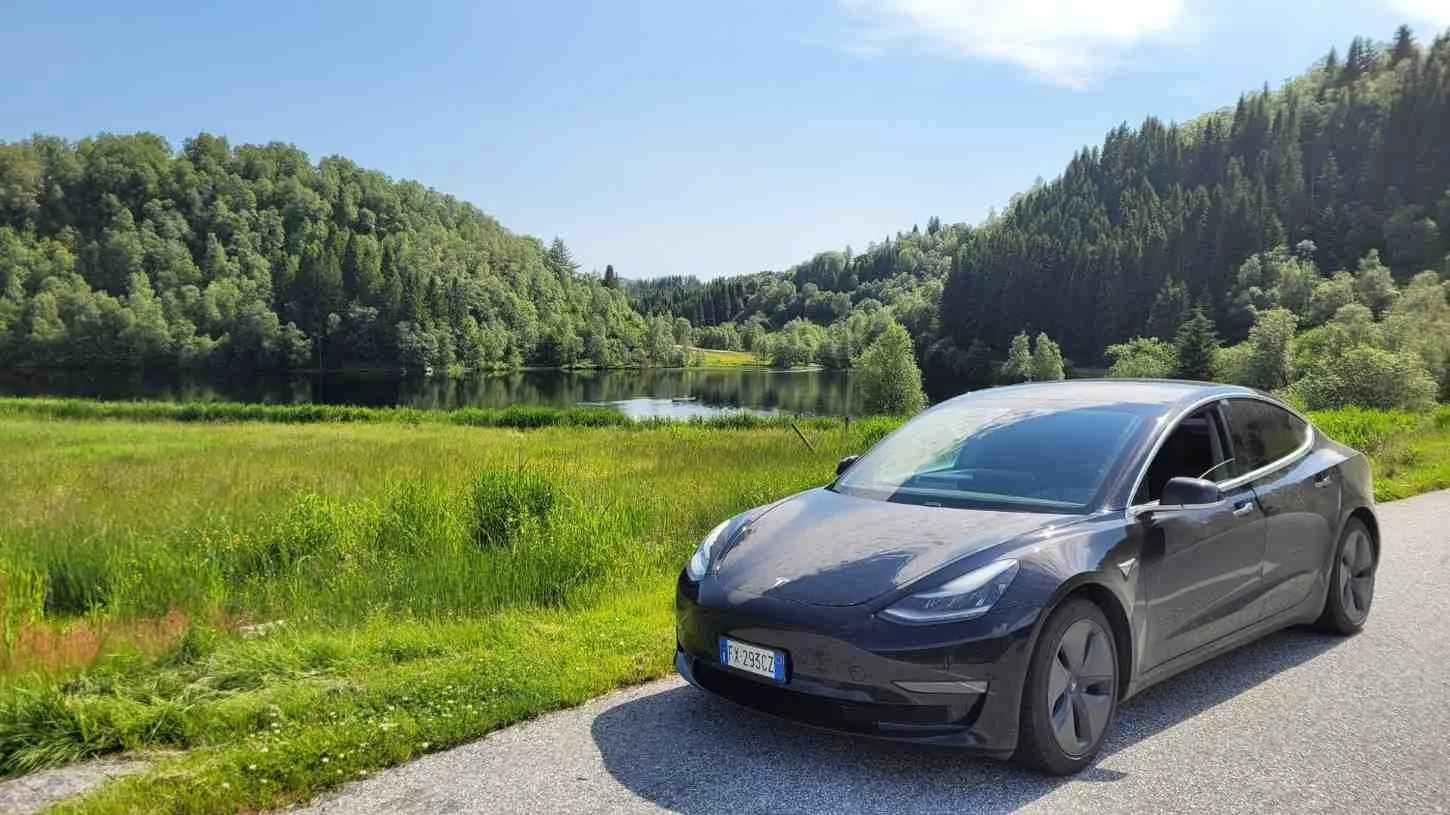EV Chargepoint grant is now available for households with on-street parking
Source: Shutterstock
Key Insights:
The new Electric Vehicle Chargepoint Grant offers households with on-street parking a 75% discount (up to £350) on the purchase and installation of EV charge points when incorporating a pavement charging solution, running from March 2024 to March 2026.
To qualify for the grant, applicants must own or rent their residence, have a council-approved on-street parking space, commit to installing a cross-pavement charging solution (cable gulley), and own or lease an eligible electric vehicle.
Salary sacrifice schemes like The Electric Car Scheme allow employees to include home chargers with their vehicle package, saving 20-50% on costs through pre-tax salary deductions, making the transition to electric vehicles more affordable and accessible.
From March 18, 2024, until March 31, 2026, the Electric Vehicle Chargepoint Grant is available for households with on-street parking. This grant assists electric vehicle (EV) drivers in covering expenses for purchasing and installing EV charge points at residential properties, especially when incorporating a pavement charging solution. The scheme's primary goal is to accelerate the adoption of electric vehicle charge points, particularly for users with on-street parking. Through the EV charge point grant, you can receive a 75% discount on the purchase and installation costs of a socket, capped at a maximum of £350.
As of July 2025, the UK celebrated a milestone of 82,000 electric vehicle charging points spread across 40,000+ locations. This marks a significant 47% surge in charging points since February 2023, as reported by ZapMap.
At The Electric Car Scheme, employees have the option to include a home charge point with their vehicle, enabling them to save 20-50% through a salary sacrifice programme. This initiative aims to facilitate a low-cost and hassle-free transition to net zero emissions. By incorporating the charger into their salary-sacrifice package, employees can use their gross salary to cover its cost, while also benefiting from full tax savings. We've established a partnership with Smart Home Charge, the inaugural charger installer endorsed by Which?, ensuring quality and reliability for our customers.
Who is eligible for the EV Chargepoint Grant?
To qualify for the scheme, you must:
Own or rent a residential property where you reside,
Have sufficient on-street parking space as per the local council's standards,
Get approval from your local council to set up a pavement charging solution connecting your home to the designated parking spot,
Commit to installing the pavement charging solution before setting up your chargePoint,
Own a vehicle that meets the eligibility criteria.
What are the vehicle requirements for this Grant?
The grant is exclusively available to individuals with vehicles listed on the OZEV (Office for Zero Emission Vehicles) approved electric vehicles list. To be eligible, you must meet the vehicle requirements, which include:
Being the registered keeper of a new or used eligible electric vehicle. The registered keeper may not necessarily be the owner of the vehicle but is responsible for tasks like paying road tax and arranging MOT inspections,
Being assigned a company car,
Leasing an eligible vehicle,
Being designated by your employer as the primary user of an eligible electric vehicle,
Having placed an order for an eligible electric vehicle.
What to do if you’re leasing an electric vehicle bundled with a charger
If you're leasing an electric vehicle bundled with a chargepoint, it must meet the following criteria:
Clearly state that you'll own the chargepoint upon completion of payment,
Provide a breakdown of the chargepoint and installation costs, including VAT,
Guarantee that the chargepoint warranty aligns with the grant requirements,
Ensure that the associated vehicle lease agreement spans at least six months.
You should present your installer with evidence of your ownership or lease of the electric vehicle.
If your company offers The Electric Car Scheme as an employee benefit, you can include a home charge point with your car and save 20-50% through salary sacrifice. This makes the process of charging your car cheaper and more convenient than any other method. We have partnered with Smart Home Charge who offer electric car charging needs in one place - they are the leading independent retailer and installer for EV chargers.
Are there any property requirements?
This grant is exclusively for domestic properties, and applicants must be residents of the property. Below are the property requirements:
The grant cannot be awarded if installing the chargepoint or infrastructure is a compulsory obligation,
Before applying for the grant, you must obtain approval from your local council to install a pavement charging solution connecting your home to the designated parking area,
You must secure any necessary third-party permissions, such as consent from a landlord, freeholder, or managing agent if you reside in a block of flats,
To qualify for the grant, you should install the pavement charging solution before setting up your charge point,
The property must be situated in England, Wales, Scotland, or Northern Ireland. Please note that properties in the Channel Islands or the Isle of Man are ineligible,
Your property must offer adequate on-street parking - meaning, your street parking is generally available outside your residence and the road is wide enough to accommodate the traffic. The final decision rests with your local council; they will assess whether a cross-pavement charging solution is suitable for your property.
Who cannot apply for the Chargepoint grant?
You are not eligible to apply for the Chargepoint grant if you:
Have previously received a grant for your household through the Electric Vehicle Chargepoint Grant Scheme or its earlier versions, such as the Electric Vehicle Homecharge Scheme (EVHS) or the Domestic Recharge Scheme,
Are in the process of moving house or intend to move,
Already possess a current chargepoint and seek a new one, even if your new vehicle is incompatible with the existing chargepoint,
Wish to relocate an existing chargepoint to a different property.
Previous charging grants available in the UK
There have been several charging grants from the Government to make electric cars more accessible in the UK. Two examples include:
Domestic Recharging Scheme - The Domestic Recharging Scheme, active from 2013 to 2014, assisted private electric car owners in covering the initial expenses for purchasing and installing a dedicated recharging unit. During its tenure, the scheme facilitated the funding of 40,333 domestic charge points. Subsequently, it was succeeded by the Electric Vehicle Homecharge Scheme in 2014.
Electric Vehicle Homecharge Scheme - The Electric Vehicle Homecharge Scheme provides grants of up to £350 to eligible electric vehicle owners to assist with the installation of a home charger. Initially launched in September 2014, by October 2021, it had allocated £78.9 million to support the installation of over 157,000 devices. Initially, the grant was capped at £900, but it was gradually reduced over time as the installation costs decreased.
This scheme targeted homeowners with off-street parking who owned an EV. However, individuals who had owned their EV for less than six months or did not own one were ineligible for the grant and had to cover the full cost of the home charger installation. Additionally, applicants could not apply if they intended to install more chargers than the number of EVs registered to their household, or if they had already installed two chargers through the scheme. The scheme concluded in March 2022 and shifted its focus to landlords of rented properties and residents of leasehold flats.
How do I apply for the Electric Vehicle Chargepoint grant?
Contact an eligible installer to get a quote for the chargepoint installation. You can find one through this link.
Reach out to your local council to get permission and agree on ownership agreements for the cross-pavement charging solution. The permissions needed may vary depending on your council. Once granted, your council will provide formal evidence for your grant application.
Get a quote for the cross-pavement charging solution from a pavement channel provider. You can find a grant-eligible installer by visiting this link.
Reach out to your Electric Vehicle Specialist at The Electric Car Scheme, and we’ll contact our partner, Smart Home Charge, to initiate your grant claim and provide your contact details.
Upon submission, you'll receive an email containing a reference number and a link to an online eligibility check form. Complete this form.
You and your installer will be contacted to confirm grant eligibility.
Once the cross-pavement charging solution is installed, your installer will complete the chargepoint installation using a designated form.
After chargepoint installation, your installer will finalise your claim, submitting details including photographs of the cross-pavement charging solution, chargepoint installation, and invoice (and contract, if applicable).
If approved, the grant will be paid directly to your chargepoint installer. They will deduct the grant amount from your invoice or contract, if applicable, displaying the total installation cost minus the grant amount.
In some instances, OZEV may choose to audit your installation to check it meets the grant requirements.
What is a cross-pavement charging solution?
A cross-pavement charging solution, also called a cable gulley, is a channel installed in the pavement outside your home. It's specifically designed to accommodate an EV charging cable. These channels are particularly helpful for those with on-street parking, aiming to minimize the risk of pedestrians tripping over charging cables.
Local councils make the EV Chargepoint grant possible
Launched in March 2023, the LEVI Fund of £381 million was introduced to offer crucial assistance to local authorities in expanding public EV charge points, especially for residents lacking off-street parking. This initiative holds significant importance as the Government views local authorities as key players in the deployment of charge points, especially for on-street charging. Thanks to this funding, nearly 150 dedicated EV officers have been deployed across councils to aid in charge point planning and delivery.
“This dedicated funding to local councils is part of our plan to ensure people can switch from a petrol or diesel car to an EV when they choose to do so”
Technology and Decarbonisation Minister, Anthony Browne
This shows how important the funding is because if we can make charging accessible to all, this will aid the transition to electric vehicles immensely. This is further supported by The Electric Vehicle Infrastructure Forum, chaired by Ministers and AA President Edmund King, who says that “AA surveys show that one of the main reasons why many drivers are hesitant towards switching to EVs is the perception that there are not enough charging points… and extending grants to those without off-street parking is a step in the right direction.”
Does the EV Chargepoint Grant affect The Electric Car Scheme?
If you are salary sacrificing an electric vehicle bundled with a chargepoint with The Electric Car Scheme you will have to make sure the chargepoint warranty aligns with grant requirements, state you’ll own the chargepoint, provide a breakdown of costs (including VAT) and you need to make sure that the associated vehicle lease agreement spans at least six months.
Electric car charging is a very important aspect of driving an electric car. On our website, you can compare the cost of charging an EV at home to rapid chargers, you can also learn more about how to charge your new electric car.
Are you an employer?
BOOK A DEMOAre you an employee?
SEE AVAILABLE CARSYou might also like…
Last updated: 21/07/2025
Our pricing is based on data collected from The Electric Car Scheme quote tool. All final pricing is inclusive of VAT. All prices above are based on the following lease terms; 10,000 miles pa, 36 months, and are inclusive of Maintenance and Breakdown Cover. The Electric Car Scheme’s terms and conditions apply. All deals are subject to credit approval and availability. All deals are subject to excess mileage and damage charges. Prices are calculated based on the following tax saving assumptions; England & Wales, 40% tax rate. The above prices were calculated using a flat payment profile. The Electric Car Scheme Limited provides services for the administration of your salary sacrifice employee benefits. The Electric Car Scheme Holdings Limited is a member of the BVRLA (10608), is authorised and regulated by the FCA under FRN 968270, is an Appointed Representative of Marshall Management Services Ltd under FRN 667174, and is a credit broker and not a lender or insurance provider.
Copyright and Image Usage: All images used on this website are either licensed for commercial use or used with express permission from the copyright holders, in compliance with UK and EU copyright law. We are committed to respecting intellectual property rights and maintaining full compliance with applicable regulations. If you have any questions or concerns regarding image usage or copyright matters, please contact us at marketing@electriccarscheme.com and we will address them promptly.







